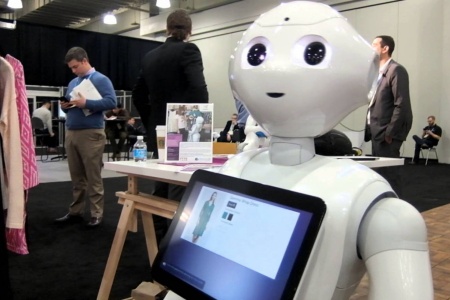Are robots about to take over the retail industry?
Taxi driver: 89 per cent. Journalist 11 per cent. Bartender: 77 per cent. Retail Salesperson 92 per cent. According to website willrobotstakemyjob.com, the retail industry is “doomed”.
What’s concerning about this website is not the spurious ratings it gives your chosen job, representing the danger of it being replaced by automation, but just how many people are visiting the site.
Last month over 300,000 people chose to enter their job titles for the site’s “gaussian process classifier” to rate just how doomed they are.
It estimated around 47 per cent of US jobs were at risk of being completely automated.
This lays bare a genuine and growing concern over job security.
The retail sector, especially those who work within warehouses and delivery for large online retailers, have already begun to experience this transition.
A recent study by the Institute of Fiscal Studies (IFS) has helped to legitimise these fears. It posited that a rising minimum wage would inevitably lead to increased automation.
As an industry which relies on a high turnover of minimum wage workers – who are set to see their wages rise incrementally for the next two years – retail is predicted to be the worst hit sector in the UK.
So is retail destined to be overrun by robots? Will minimum wages become so high that unskilled jobs would be more efficiently carried out by machines?
One retailer that is leading the way in automation doesn’t think so. China’s JD.com is implementing everything from robotic arms for picking, to automated delivery drones, to AI and big data technologies on a scale unthinkable here in the UK.
Alongside its 66,000 delivery drivers, JD.com envisions an army of automated aerial and wheeled drones to fulfil the huge delivery demands that a population as big as China has.
Of course, the UK has different delivery demands, and will likely use automation to solve cost issues rather than expansion limitations.
What’s more reassuring is the idea that the automated drones themselves will create jobs. Menial jobs which can easily be replaced by automation likely will, but instead of simply taking up jobs of people, they are creating an entirely new industry.




